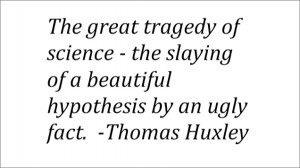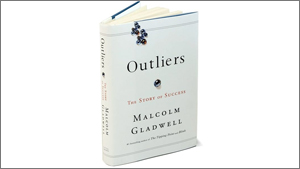 We are very excited to announce a new segment at BenchFly called “Dear Dora,” a monthly advice column featuring Dora Farkas, Ph.D., author of “The Smart Way to Your Ph.D.: 200 Secrets from 100 Graduates.” Here, we introduce Dora by peppering her with questions, like any good scientist would…
We are very excited to announce a new segment at BenchFly called “Dear Dora,” a monthly advice column featuring Dora Farkas, Ph.D., author of “The Smart Way to Your Ph.D.: 200 Secrets from 100 Graduates.” Here, we introduce Dora by peppering her with questions, like any good scientist would…
Flyceum: Your Science. Your Career.
We’re following in the tradition of open discussions among scientists that has resulted in important advances in both science and society.
Dear Dora: Introducing Dora Farkas, Ph.D.
by
The Importance of Sterile Technique
by
Messing up your own experiments is one thing. Messing up an entire lab’s is a whole nother. One of the easiest ways to make a large group of people furious with you instantly is to contaminate the incubator. It’s the equivalent of lighting their experiments on fire – they should be mad. The bad part is, it’s your fault. The good part is, it’s completely avoidable…
The Keys to a Great Hypothesis
by
 A great hypothesis is the foundation upon which great experiments may be designed and carried out. Hypotheses ultimately help us to make sense of the experimental data we observe. Non-hypothesis-driven research, we are often told, is a reckless fishing expedition that relies on luck and is not how research should be performed. Interestingly, the opposite of this criticism is the biggest danger of working with a hypothesis.
A great hypothesis is the foundation upon which great experiments may be designed and carried out. Hypotheses ultimately help us to make sense of the experimental data we observe. Non-hypothesis-driven research, we are often told, is a reckless fishing expedition that relies on luck and is not how research should be performed. Interestingly, the opposite of this criticism is the biggest danger of working with a hypothesis.
Are We Failing Our Graduate Students?
by
 In a recent article, “Finding a Partner for Your Ph.D.,” the AAAS/Science Business Office provided advice to prospective graduate students. They start by presenting horrifying graduation rate data (that their target audience probably shouldn’t even see…). Even scarier is their interpretation of what these data indicate. Regardless of how you interpret it, the bottom line is that we’ve got some serious problems.
In a recent article, “Finding a Partner for Your Ph.D.,” the AAAS/Science Business Office provided advice to prospective graduate students. They start by presenting horrifying graduation rate data (that their target audience probably shouldn’t even see…). Even scarier is their interpretation of what these data indicate. Regardless of how you interpret it, the bottom line is that we’ve got some serious problems.
How to Mail DNA
by
Find the right box. Crush the dry ice. Assemble the package. Get a FedEx number. Fill out the forms. Schedule a pick-up. Pay for the package. Wonder why there’s not a better way…
Training Your Autopilot: Mastering Mindless Tasks
by
 Woody Allen famously said “80% of success is showing up.” At the bench, there are days when this number feels closer to 99. Although we all live for the mind-blowing, cutting-edge, high-impact experiments, the reality is that much of what we do on a daily basis is routine. But it’s these mindless tasks that can be the real killers…
Woody Allen famously said “80% of success is showing up.” At the bench, there are days when this number feels closer to 99. Although we all live for the mind-blowing, cutting-edge, high-impact experiments, the reality is that much of what we do on a daily basis is routine. But it’s these mindless tasks that can be the real killers…
Become a Scientific Expert in Five Years
by
 Graduate school is undoubtedly a key training period in which we learn to carry out independent research in preparation for our future career. The postdoc is considered an essential step on this pathway. But what determines when we’re ready to step out on our own? When do we officially become a scientific expert?
Graduate school is undoubtedly a key training period in which we learn to carry out independent research in preparation for our future career. The postdoc is considered an essential step on this pathway. But what determines when we’re ready to step out on our own? When do we officially become a scientific expert?
Why Do We Still Publish Scientific Papers?
by
 This question is directed towards people who think that ranking ~24,000 scientific journals according to a negotiable, irreproducible and mathematically unsound measure is a practical way of sorting the wheat from the chaff. The specific uselessness of Thomson’s IF aside, if this ranking were done in the best possible way, what would be a consequential way of using it?
This question is directed towards people who think that ranking ~24,000 scientific journals according to a negotiable, irreproducible and mathematically unsound measure is a practical way of sorting the wheat from the chaff. The specific uselessness of Thomson’s IF aside, if this ranking were done in the best possible way, what would be a consequential way of using it?
Reducing Bumping on the Rotovap
by
The bump guard lesson is usually learned one of two ways: A) someone teaches you, or B) someone doesn’t. The former is ideal and you may have no idea how lucky you are. The latter looks like this…
I’ve Found a Job – the Final Steps of Grad School
by
 (From the archives of an almost-real email correspondence…)
(From the archives of an almost-real email correspondence…)
Dear Tim:
The Widget Company would like to inform you of the following job offer, as head of scientific development, working on the discovery of our next generation widgets….
The email then goes on to state your compensation and your start date. And that’s when the joy of your sweet new salary turns sour…

